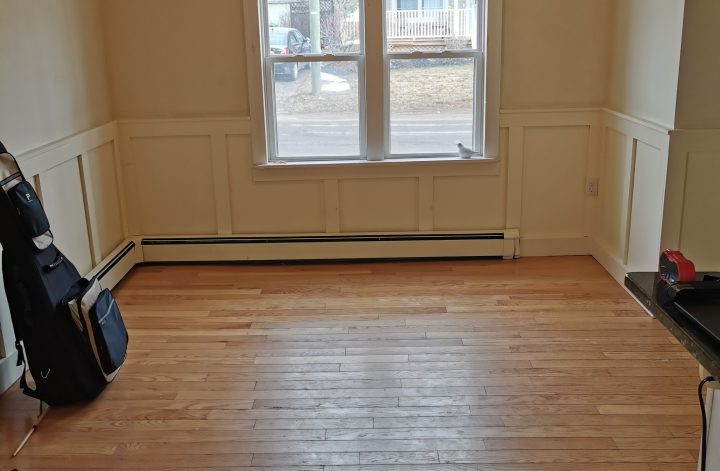Yesterday, I went to a funeral for the drummer in my fiancé’s band. He died at 60, a few short months after being diagnosed with cancer.
Suddenly, that old goal-setting exercise of “What do you want your obituary to say?” seemed a lot more literal.
I’ve been doing that exercise – designed to get you thinking about the type of life you want to live and in motion toward it – every few years since my mid-20s. Each time it’s been some version of “June Morrow was a best-selling author, compelling media personality and world-travelling motivational speaker whose books and talks inspired millions.”
Lately, however, I’ve been thinking it might be time to retire this dream.
A few years ago, I wrote a book that sold maybe 150 copies. I’ve delivered a handful of inspiring speeches in a variety of venues in Toronto, as well as one that went viral online. I’ve taken courses on building an audience and courses on how to be a motivational speaker. Over the years, I’ve interviewed dozens of people online.
Yet, achieving this vision of people lining up to have me sign their book and stadiums filled with people high on their own potential still seems as distant as it did when I first wrote it after seeing Tony Robbins speak 30 years ago.
I am 55. I have a demanding full-time job with a 60-minute commute and a much-needed pension. I live in a teeny tiny town with a soon-to-be husband I want to spend time with and a dog that needs walking three times a day.
I have 15 pounds to lose, meals to prep and am at the tail-end of menopause. Frankly, I’m exhausted.
I don’t want to spend my evenings and weekends on a computer building a business. I want to spend my free time in-person with people I enjoy. I want to deepen existing friendships and make new ones. I want to play more music and have more sex and hang out on the couch with a good book and my dog curled up in my lap.
Holding onto the dream of making a massive impact takes me away from this. But damn is it hard letting it go. After all, it’s been the measure of my worth for decades!
I’ve been told my whole life by various teachers and mentors that I have potential – the potential to be a great writer, the potential to be a great speaker, the potential to reach large audiences. And God forbid I let those people down.
Achieving my dream would also get me the attention and validation, I only recently learned how to give myself (and boy, would it make those bullies from childhood feel bad!).
So, on top of the inner drive to prove my inner cheerleaders right and my inner critics wrong, for decades now I’ve been guzzling self-help messages to amplify and fuel all that potential: “If you can dream it, you can do it.” “Success comes to those who are willing to work harder than anyone else.” And “Shoot for the moon. Even if you miss it, you’ll land in the stars.”
I’ve loved these messages. I’ve cherished them. And I’ve spread the gospel. I still love these messages. They’ve propelled me to check off a whole lot of my life bucket list. They’ve turned me toward lots of things that bring me joy. They’ve helped me be brave.
But I’m starting to think that they should come with the warning: May cause abandonment of the present and feelings of not being enough. Because that’s where most modern self-help gurus start – not with the question what’s going great but by asking what’s missing
And in my quest for what’s missing I’ve abandoned people and places and, at times, myself. I’ve spent innumerable hours trying to prove my worth to the ghosts of people long gone.
I’ve honed my skills sure, but I’ve honed them chasing a carrot on a stick because the odds of becoming famous in any public-facing field are slim at best. (One possibly unscientific website put them at 0.0086% or roughly one in 11,628.) The percentage of those famous people who are self-help gurus would have you believe that you can achieve this through hard work and persistence because – hey – that’s what worked for them. But the truth is you have better odds of winning $1 million in a lottery.
And it’s a short jog from “Where in your life aren’t things good enough” to “Why aren’t you good enough?” Because the second thing self-help gurus tell you after “You can have your dreams!” is “Success is up to you!”
And so, at first it’s, “You’re 25! You should have achieved this by now.” Then it’s, “You’re 30! Why haven’t you achieved this?” Then, “You’re 40 now. This is the decade to achieve this.” Then suddenly you’re like, “I’m how old? Holy fuck! How did I get here without achieving this… And why am I so tired?”
I’ve been carrying this dream of massive success around like a cross on my back thinking if I don’t achieve it, my life will literally have been in vain. But, comparing myself to self-help celebrities and beating myself up for not being one of them has repeatedly made me feel small and insignificant and like a failure.
And at 55, that is not how I want to feel.
I want to feel creative and connected and in my body. I want to feel joy and love and gratitude for living this amazing life. I want to feel at peace with myself. And yes, I want to express myself and inspire people but I don’t want to have to wait for the adulation of the masses (a fickle proposition at best) to do it.
I want to be happy with what I have. And when I turn my gaze toward the life that I have, I am.
Which isn’t to say there isn’t still value in the dream. I may never be a best-selling author but that doesn’t mean I can’t write another book or update my last one or keep posting on this blog.
A world tour may not be on my itinerary, but I can still give inspirational talks at Toastmasters, read my work at open mics, or stage another play. (And I when I find the time to do it, I can certainly sneak moments of inspiration into the training I deliver to health care workers in my job.)
And I will continue to do these things not because some still-wounded part of me believes would validate my existence, but because I enjoy doing them and by doing them, regardless of the outcome, I am honouring myself.
At the funeral for our friend, people didn’t talk about what he did for a living. They talked about his kindness and quiet strength and willingness to help. They talked about how he was a great listener and a good friend.
It’s not what you do. It’s how you live. And that happens day in and day out in the minutia of every day life.
So, at 55, I’m rewriting my obituary once again.
This time, I want people to say: “June was a loving a partner and a great friend. She was energizing and entertaining (and so good looking for her age 😉). She made me think and she made me laugh and she inspired be to be braver. But she also accepted me for who I am and where I am. June helped me see that I was enough.”
Because, as I so often forget, I am enough – just as I am.
And so are you.



